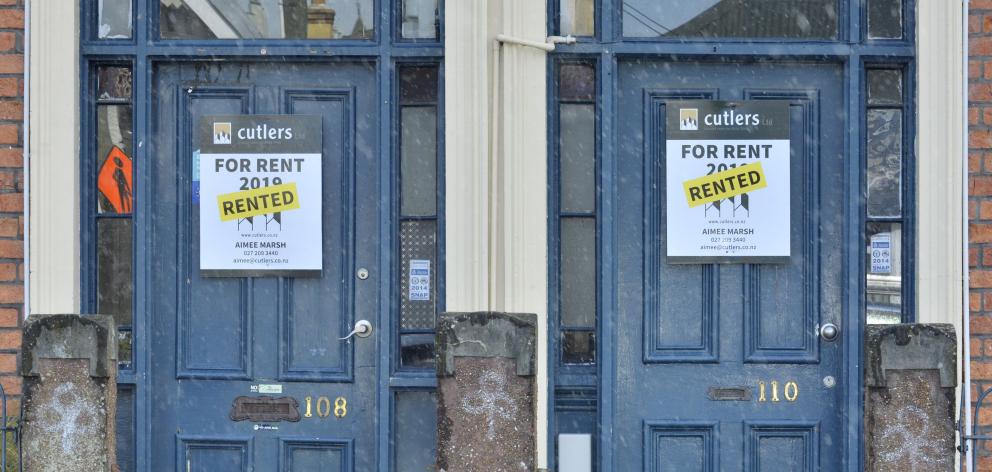
Normally, when you are asked at social gatherings what you do, the response "I work in tax'' clears the room. But these days, people actually want to engage.
So clearly I need to make some conversational hay while the capital gains tax (CGT) sun shines, because in all likelihood, this is going to be a fizzer in the end.
As we all know, despite the posturing and calamitous claims in the media by both proponents and opposers of a CGT, where this lands is fundamentally a political decision to be determined by assumptions around the hearts and minds, and votes, of middle New Zealand.
The Government, in my view, is truly in an unenviable position in that the original rationale for the review of the tax system itself has been lost in the noise and, based on sound bites, it appears that the electorate itself has some real concerns about the idea of a CGT, let alone the underlying detail.
One poll had circa 54% of the electorate (and 42% of Labour voters) against the concept even before we get into the detail, where the devil lives.
If we peel back the noise, we can all accept that there are some underlying issues in New Zealand that need to be addressed, including long-term affordability of current superannuation entitlements, the impact of changing demographics on both this plus healthcare costs and ultimately, collectibility of tax revenue for the Government, and, of course, the proposition of systemic fairness in tax, which is an esoteric concept largely determined by your personal circumstances.
Putting these aside, as the Government wrestles with what is essentially a political design of a tax system, the real design pressure points, in my mind, are around complexity and transition.
Some complexity comes in the form of not recommending a more traditional, broad-based CGT at reasonable rates across all asset classes, which doesn't just shift the tax burden (revenue neutral), but rather also sets New Zealand up for the future (accepting that we also need to address affordability of National Super and healthcare as our population gets older and lives longer).
Every time there is some form of exception, whether such be an asset class or some form of relief based upon an industry or situation, the complexity of the tax administration increases significantly, which drives compliance costs.
Looking across the Ditch at Aussie, its CGT is both complex and costly to administer, relative to the funds it raises for the Government.
The best taxes are low touch in terms of administration, with a high degree of certainty.
To be clear, this is not a criticism of the tax working group (TWG) as it operated within a mandate, or even the Government, which really set the scene for this process during an election campaign on the fly, before truly understanding the consequences.
Transition is also an issue that presents itself in many forms.
Firstly, we, as humans, don't really like change, so it is probably inevitable that these proposals have been labelled as an attack on the Kiwi way.
But that is an unsophisticated, knee-jerk comment, in my view. The real debate around transition should be looking at the relative costs associated with introduction of a CGT compared to revenue generation and distraction from productivity, such as the drag on the economy of having to value every asset as at a certain date, plus the impact on investment behaviour.
Other countries have a CGT, so clearly it is not impossible. However, it does come with significant transitional risks as the market place responds to changes, especially where there are exceptions which inevitably create market distortions.
At the moment, we tell ourselves we do not have tax capital gains, but that is not true. Some land transactions are taxed whereby the gains are "capital'' in nature (and I'm not talking about speculators here as profits from speculation have always been income), the financial arrangement rules ignore the capital/revenue boundary, and in effect foreign shares are taxed under the FIF (foreign investment funds) tax regime, on a similar basis to a CGT.
So we already have arbitrary lines drawn.
The TWG has merely recommended that some more arbitrary lines be drawn for other asset classes.
It is the unknown market response to the changing of the investment fundamentals (i.e. post tax returns) that should cause some disquiet.
Already we see residential landlords fleeing the marketplace for a raft of reasons, which is driving up rents across the country.
If the Government draws an arbitrary line between say residential and commercial property like farms (former in CGT, latter excluded), how will the market react to this boundary/change in tax/return outcomes?
This is one of the risks the Government must consider when it responds to the TWG report in April.
A final comment on fairness, if the final answer is only to tax non-family home residential property dispositions (which is my pick) , then that would fail to address the fundamental concern around the fairness of the tax system, as it will hit middle New Zealand more than the very wealthy.
However, one does also question whether a 33% tax on all gains is simply too aggressive, and perhaps a lower rate (after say a minimum two years' ownership) would be more palatable for a wider range of asset classes?
It's times like this that one is pleased to be a commentator, and not a decision-maker.
- Scott Mason is a managing partner and tax specialist at Crowe Horwath.












